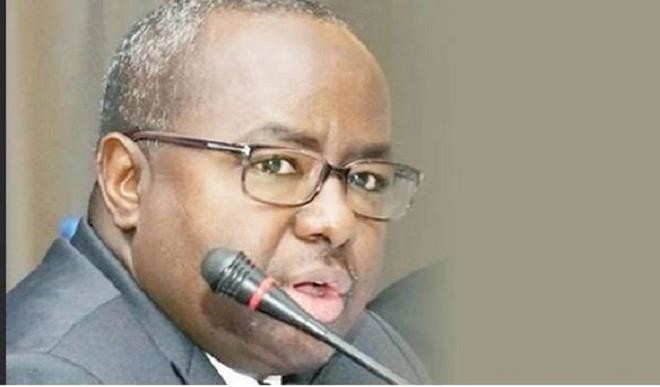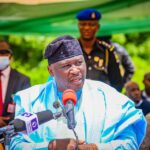I had predicted in an opinion piece last year that the case against Munir Gwarzo, the suspended Director General of the Security and Exchange Commission (SEC) by the ICPC would not stand court scrutiny and that he would be vindicated.
I had based my conclusion on the No Case submission of Gwarzo after all the prosecution witnesses had testified and ICPC had closed its case.
Gwarzo was accused of paying himself severance allowance as executive commissioner after he was appointed at SEC after he was appointed DG. But the prosecution witnesses had all disputed the charge claiming that a person could not occupy the offices of executive commissioner and D-G at the same time, adding that Gwarzo was an executive commissioner before May 2015 when he was appointed SEC DG. They had told the court that the office of executive commissioner was for a fixed period, adding that when the first defendant left the office of executive commissioner that tenure came to an end.
What that means is that the severance pay for which Gwarzo was docked, was not illegal after all because the payment was after he completed his tenure as executive commissioner.
Nearly a year after, Gwarzo’s vindication finally on Tuesday when a Federal Capital Territory High Court in Abuja discharged and acquitted the suspended Director-General of SEC and his co-defendant, Zakwanu Garba, who was the Executive Commissioner of the commission, of the charge of fraud filed against them.
The Independent Corrupt Practises and Other Related Offences Commission (ICPC) investigated and charged him to court over N104 million severance package he got in June 2015. Apart from the severance package, the ICPC also flagged another N10m that he allegedly took as excess car grant paid to him.
In a judgment delivered on the case on Tuesday, the judge, Mr. Baba-Yusuf, held that the prosecution did not prove beyond a reasonable doubt that the accused persons committed the offence for which they were charged.
The judge said by its own admission, the prosecution through its witnesses and evidence confirmed that the action of the defendant was by a decision of the governing board of SEC, which is the highest decision-making body of the commission.
What the court did not say, since the prayer was not before it, is that the suspension of Gwarzo as SEC DG was trumped up and is a classic case of executive temerity. It also highlights the desperation of those who suspended him; that they were determined to get him out of the way at all cost.
Although the minister of finance has the power to suspend the SEC DG to allow for unfettered investigation if there are charges against him. But the charges the ex-minister brought against him were deliberately sourced to provide an excuse for a pre-determined action.
But the reasons for such executive audacity displayed by the former minister are also well known. Gwarzo himself had revealed this when he appeared before House of Representatives Committee on the Capital Market headed by Hon. Tajuddeen Yusuf. Gwarzo stated at the public hearing that the former minister of finance suspended him because of his refusal to comply with her directive to stop the forensic audit of Oando.
Although it was an allegation the former minister, who also appeared before the committee, denied, but offered no more than a denial. It was such a weighty allegation that required detail rejoinder from the ex-minister, but which never came, proving that the Oando matter was a delicate one for her.
Gwarzo had minced no word throughout the house hearing about the real reason he was suspended. He had claimed that the ex-minister had vested interest in the Oando matter and was desperate to stop the investigation of the oil giant. He even mentioned names of people connected to the company that had personal relationships with the ex-minister. But Gwarzo’s whistleblowing was drowned in the media frenzy generated by the allegations against him.
The suspended DG, it now appeared, was unfairly maligned by the ex-minister and exposed to months of horrendous public odium due to the media attention given to the matter. But after months of investigations by the ICPC and a court prosecution which has now established no guilt on the part of Gwarzo, it is time for the Presidency to intervene.
Gwarzo should be restored to his position as DG of SEC. an institution he had undoubtedly led to greater heights. Recalling him from suspension and returning him to the office will help convince public servants that integrity and tenacity pays; that government and country are worth serving.
It is noteworthy also to know that the judge concluded the judgment by affirming that the entire body of evidence presented against Gwarzo by the prosecution could not be used by any court or tribunal to convict him.
There is no doubt that forces against Gwarzo would not want him back at SEC and would do anything and pull any string to ensure he doesn’t come back. But this must be resisted by the government in the interest of public service morality diligence. It would undoubtedly send the message to all public servants that no matter how hard, diligent and transparent he does your job when someone wants you out, you’re out!
Solomon wrote from Abuja

 Join Daily Trust WhatsApp Community For Quick Access To News and Happenings Around You.
Join Daily Trust WhatsApp Community For Quick Access To News and Happenings Around You.


